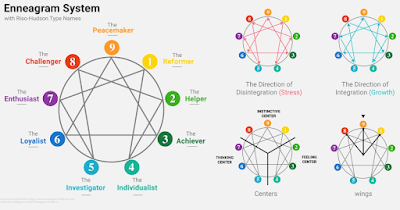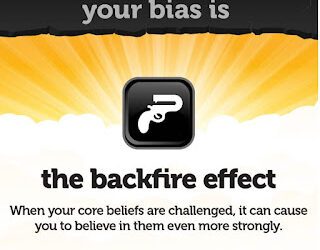A few weeks ago, a friend of mine asked me what spiritual disciplines I was participating in. If I asked you the same question, what would you say? One of my answers was sleep, which seemed a bit odd to my friend until I explained the way sleep affects our lives. Most people, if they’ve ever even considered sleep as part of their spiritual life, probably think they should be doing less of it, not more. I’m going to gives some reasons why Christians might start considering sleep a spiritual practice and why we should probably be doing more of it.

The science of sleep might just be the single topic that is most susceptible to pop-psychology bunk or pseudoscience. The myths about sleep in popular culture are extremely pervasive and overshadow real science. Thankfully, sleep is not a very controversial topic so hopefully, that means I won’t offend anyone and people might actually be open willing to follow my suggestions!
I say this without exaggeration, but if you think of all the things we do on a regular basis, sleep is probably the single more important one (obviously assuming that eating and drinking are done to a degree that avoids death). This is because sleep affects how well we can do all of the other activities. It can help us drive safer, memorize scripture better, stay focused at work, and even eat better.
A person who is sleep-deprived will have all kinds of side effects, some of which are obvious, but some are not. For instance, sleep deprivation makes people cranky. We all know this, but there’s more to it than that. It also makes you more likely to get angry even when you’re in a good mood. Having a morning coffee or feeling alert may make you feel alert, but it won’t necessarily improve your performance very much. Sleep deprivation negatively affects memory, emotion regulation, alertness, mood, physical performance, concentration, mental and physical health, self-control, and even our diets (we crave fatty and sugary foods when sleep-deprived, which is especially bad when our self-control is already exhausted). How we sleep affects every aspect of our lives.

Scientists who study sleep are mostly concerned with two variables: quality and quantity. Both variables affect how a person feels and functions during the day. Poor sleep or not enough sleep can be equally negative. If a person doesn’t get enough high-quality sleep, they start to accrue sleep debt, which is a term to describe how sleep-deprived a person is. Moreover, the effects of sleep debt are cumulative from day to day so we accrue more and more sleep debt every night we don’t get enough sleep.
Quantity
Everyone knows we’re supposed to get 7-8 hours of sleep per night; right? Wrong. For most adults, a full 8 hours is necessary to avoid sleep debt (although there is some variability). One of the most pervasive myths about sleep is that we can adapt to less sleep than we need. We might be able to adapt to a schedule, but this will not improve our cognitive, emotional, and physical performance. The amount of sleep you need is biologically determined and you cannot change it.
Kids need more sleep than adults and women tend to need a little more than men. Adults under the age of 25 or so likely need a little over 9 hours of sleep per day to avoid sleep debt. I say ‘day’ because the ideal would be to sleep mostly at night and then nap in the early afternoon, but since most people in our culture are unable to nap, sleeping only at night works just fine.

There is the rare person who needs less than 8 hours a day, but most adults really need the full 8 hours to avoid sleep debt. If you need 8 hours per night and only get 7 hours, you may still feel fine and perform fine the next day, but if you only get 7 hours per night throughout the week, you will feel and perform progressively worse throughout the week until you are able to get a full night’s worth of sleep (and maybe more) to get rid of your sleep debt. Also, just like there are people who need less than 8 hours per night, there are also people who need more, so don’t necessarily be worried if you need more than 8 hours per night (although sleeping too much can be a sign of depression or other problems so it might be something to discuss with a doctor).
The easiest way to know if you’re not getting enough sleep is whether you need an alarm to wake up and if you sleep in on the weekends. A person who is getting enough sleep will not need an alarm nor will they sleep in on weekends. It still might be a good idea to set an alarm clock just in case, but if the alarm is waking you up regularly or you feel groggy when it goes off, you probably need more or better sleep. Also, don’t use the snooze button. They’re bad for your quality of sleep. Just set the alarm later.
Quality
Most people tend to think they have limited control over the quality of their sleep. This too is far from true. The most important thing a person can do to ensure they get high-quality sleep is to get on a set schedule, even on the weekends. Our circadian rhythm governs our sleep cycle and alertness throughout the entire day, even when we’re awake. It is because of our circadian rhythm that you probably feel overwhelmed by tiredness every day shortly after lunch and start to feel tired around bedtime.
When we have a consistent schedule of going to bed at the same time and waking up at the same time, our circadian rhythm becomes more stable and we sleep better. Just because you’re an adult doesn’t mean you’re immune to the negative side-effects of a poor schedule. The more consistent you are, even on the weekends, the better your sleep quality will be, which means you may actually need less sleep. Seven hours of high-quality sleep could be as good or better than 8 hours of poor sleep, depending on several other factors.

There are plenty of other things you can do to improve the quality of your sleep, even if you believe some pop-psychology or anecdotal myth about sleep! 😉 The one I hear most often is “I need background noise to sleep.” That may be true, but that’s probably only because you’ve been conditioned to need it. Your sleep quality will likely improve if you create a habit of sleeping without background noise, but it might take some time to adapt. On the other hand, if there are noises you cannot control, white noise might be better than erratic noise. In other words, the sound of a fan or rolling ocean sounds are probably better than random train noises sporadically throughout the night.
Other factors to consider are your level of physical activity during the day, what you do before bed, the temperature of your bedroom, and the level of darkness. A cool, dark room is ideal. Obviously, you don’t want it too cold, but a little on the colder side with a warmer blanket is better than being too warm. If you must have a light somewhere, a red light is best because it has less impact on your melatonin production. Additionally, reading, working, or watching TV in bed also negatively affects our sleep quality. If we limit the use of our bed to sleep (and sex), our brains learn to associate our beds with sleep so that we will fall asleep easier and stay asleep better.
One final myth to dispel is that alcohol helps you sleep better. This is false in two ways. It is true that when you drink alcohol, you feel like you’ve slept better, but this is because we don’t remember all the times we woke up and tossed and turned throughout the night. Additionally, alcohol causes us to have less REM sleep, which may sound great, but our brains need the right balance between the different levels of sleep. As a result, too much deep sleep one night will cause us to have to catch up on REM sleep the next night. In other words, drinking too much or too close to when we go to bed on a Friday night will cause us to sleep like crap on Saturday night.
Conclusion
It’s actually pretty hard to sleep too much. This is because we wake up naturally once we get enough sleep. If you are sleeping too much, it could be a sign of mental or physical health issues, in which case, it’s probably a good idea to see a doctor. It’s possible to be from laziness, but this is unlikely because, in order to sleep too much without a health issue, you basically have to just lay around for extended periods of time to fall back asleep.

As Christians, we should view sleep as a spiritual discipline. God designed us to require sleep and determined how much sleep we need. There are lots of reasons to stay up late from time to time, some good and some bad. Whether your reason is reading, watching Netflix, “doing work for the kingdom,” or something else, you cannot avoid the negative effects of sleep deprivation. In fact, there is a correlation and possibly a causal link between sleep deprivation and Alzheimer’s.
Getting enough high-quality sleep probably won’t cure all your problems, but it might help some of your issues or play a role in doing so. It can help you drive safer, be a better spouse and parent, improve your attitude, help you learn better, be a better evangelist, and be more motivated to do whatever God might be calling you to do. All of this is especially important for apologists who are often engaged in intellectually and emotionally challenging activities.
References
Cappuccio, F. P., D’elia, L., Strazzullo, P., & Miller, M. A. (2010). Quantity and quality of sleep and incidence of type 2 diabetes: a systematic review and meta-analysis. Diabetes care, 33(2), 414-420.
Ju, Y. E. S., Lucey, B. P., & Holtzman, D. M. (2014). Sleep and Alzheimer disease pathology—a bidirectional relationship. Nature reviews Neurology, 10(2), 115.
Lim, J., & Dinges, D. F. (2010). A meta-analysis of the impact of short-term sleep deprivation on cognitive variables. Psychological bulletin, 136(3), 375.
Koslowsky, M., & Babkoff, H. (1992). Meta-analysis of the relationship between total sleep deprivation and performance. Chronobiology international, 9(2), 132-136.
Pilcher, J. J., & Huffcutt, A. I. (1996). Effects of sleep deprivation on performance: a meta-analysis. Sleep, 19(4), 318-326.
Van Dongen, H., Maislin, G., Mullington, J. M., & Dinges, D. F. (2003). The cumulative cost of additional wakefulness: dose-response effects on neurobehavioral functions and sleep physiology from chronic sleep restriction and total sleep deprivation. Sleep, 26(2), 117-126.
Wickens, C. D., Hutchins, S. D., Laux, L., & Sebok, A. (2015). The impact of sleep disruption on complex cognitive tasks: a meta-analysis. Human factors, 57(6), 930-946.



